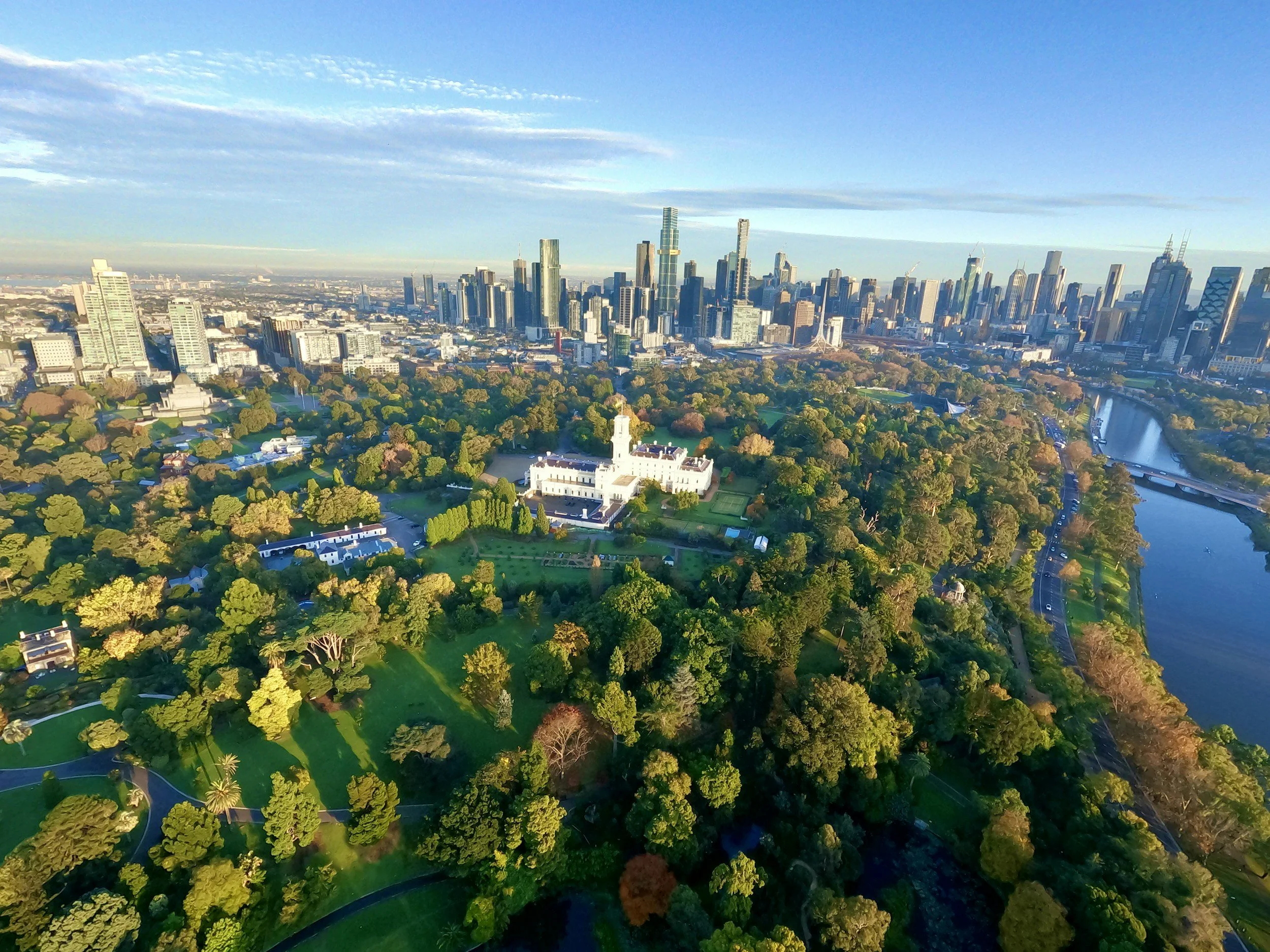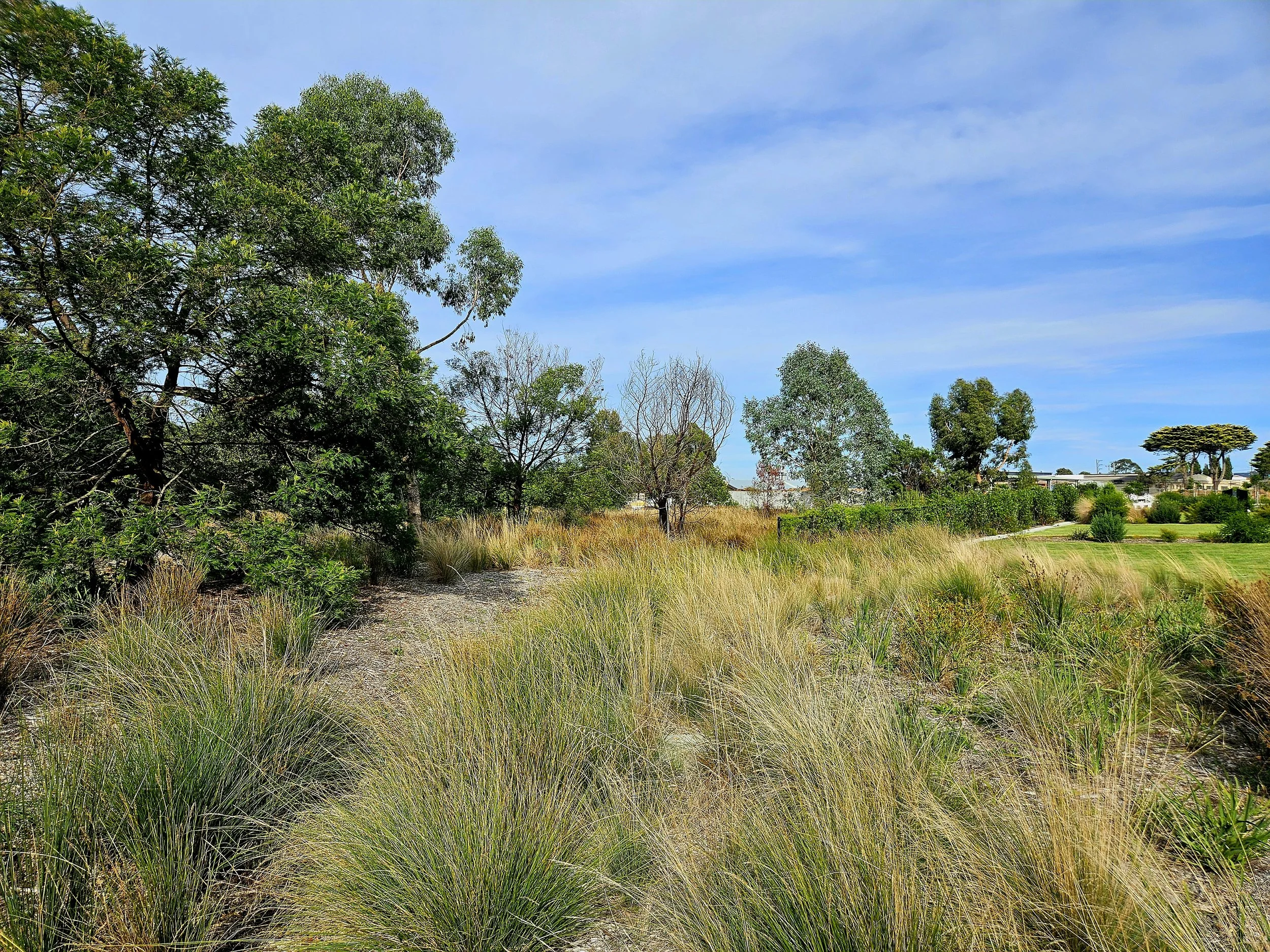
Climate sensitive design
Beyond standard practice: designing for a resilient and decarbonised future.
We recognise that civil infrastructure designed today represents a multi-generational commitment to the community. We believe the greatest value we can provide is helping our clients bridge the gap between sustainability targets and practical, data-driven engineering outcomes.
As embodied carbon reporting becomes more critical for industry, the Australian government has set carbon reduction targets of up 70% by 2035. Embodied carbon from construction is a major contributor to national emissions, and is expected to become the dominant emissions by next decade. It offers our sector a significant opportunity for immediate abatement.
Meeting carbon targets requires an engineering philosophy that goes beyond standard practice. The assets we design serve communities for generations. It is therefore vital to consider how they can contribute to a decarbonised world and be resilient to a changing climate.
Climate change presents complex impacts. For example, in many Australian regions, rainstorm intensities are increasing, yet total annual stormwater runoff might actually decrease by 20%. This implies a future with more severe flash flooding, but less water availability.
Our solutions for resilient and sustainable cities
We provide specialist, climate-aware advice and solutions across a range of key areas, all focused on creating more resilient and sustainable infrastructure.
-

Low-carbon design
We leverage our in-house WC3 carbon app, developed specifically for civil infrastructure, to quantify up-front embodied carbon in our projects. We find that reductions in embodied carbon can also lead to savings in capital costs.
-

Regenerative design
Taking inspiration from regenerative agriculture, this approach focuses on retaining and infiltrating water within the landscape. It's a strategy that builds resilience by reducing the urban heat island effect and stormwater runoff. Learn more.
-

Climate-resilient design
Our ground plane expertise is applied to future climate projections, ensuring your assets can withstand more intense and unpredictable weather events. We consider these impacts on flooding, stormwater and managing the impacts on pavements.
Improved outcomes for generations
Achieve Decarbonisation Targets
Our low-carbon designs and tools directly support your decarbonisation and reporting requirements.
Reduce Project Costs
By optimising material use through our embodied carbon calculator, we often identify opportunities for tangible project cost savings.
Enhance Urban Resilience
Our regenerative and climate-aware designs create more resilient cities that are better prepared for extreme weather, heat, and other climate impacts.
Improve Reporting
We provide the precise data needed for robust environmental reporting, demonstrating leadership in sustainability to all stakeholders.
Meet our expert
Ready to design for the future?
As purpose-led engineers, we are committed to providing the solutions needed for a low-carbon, resilient future.

